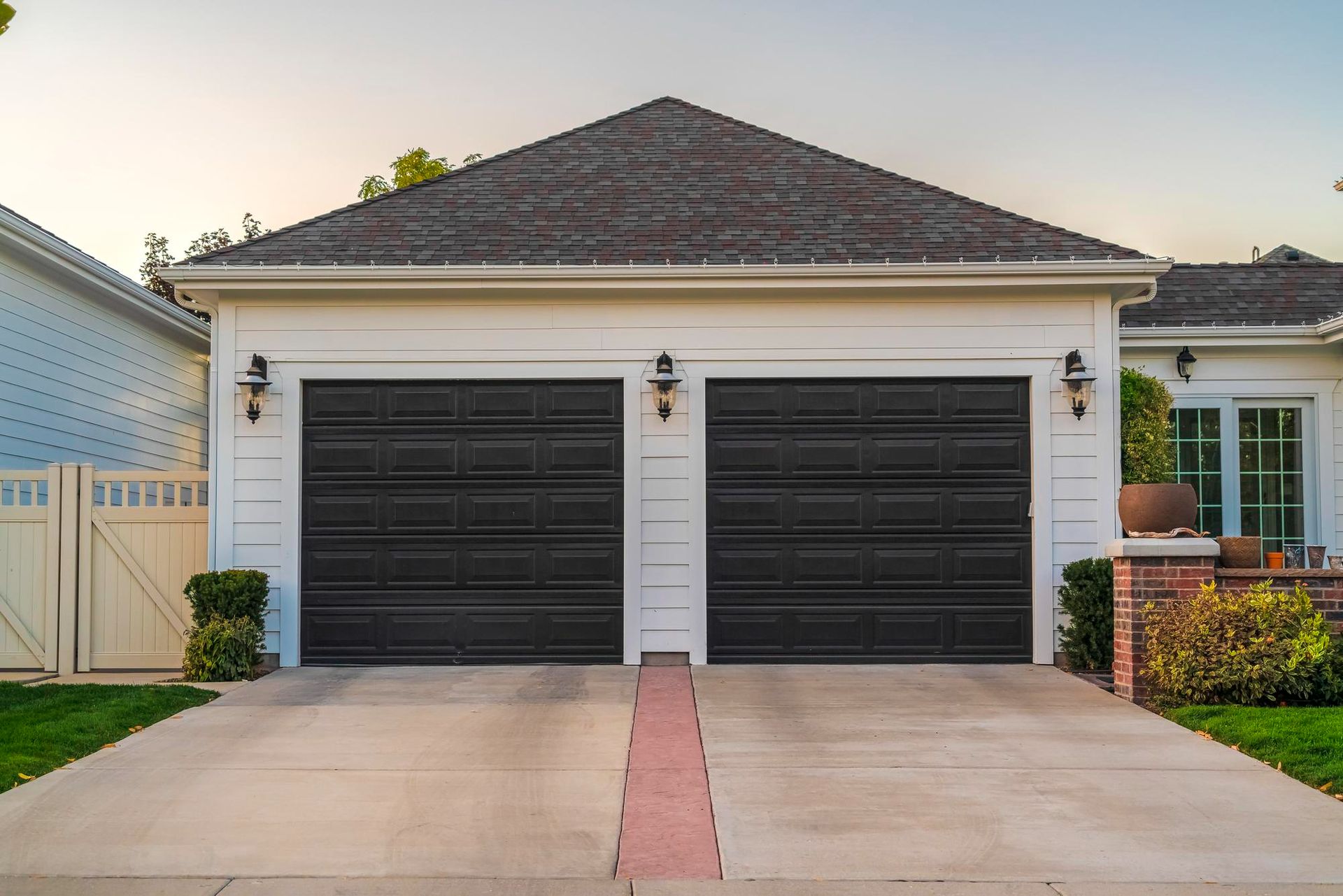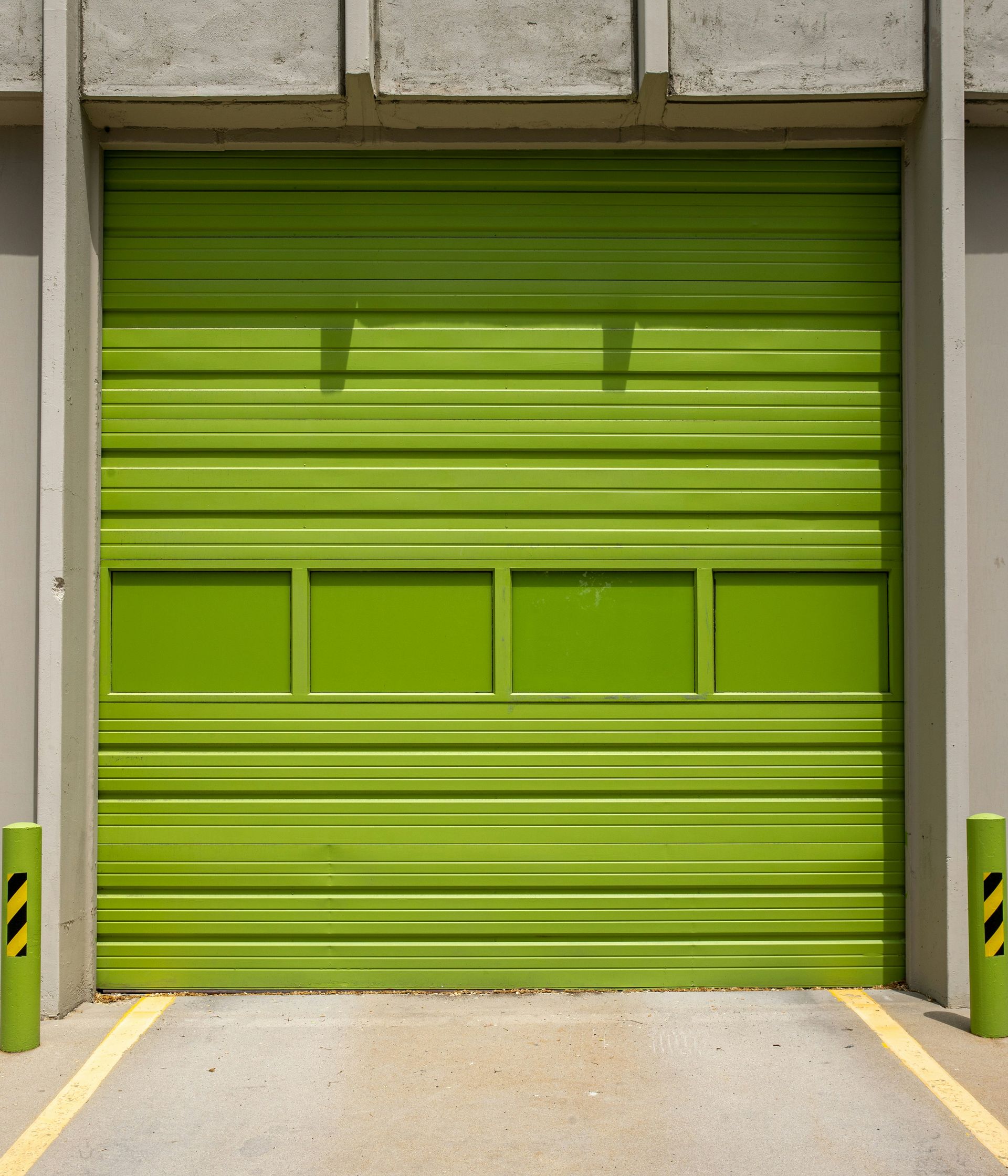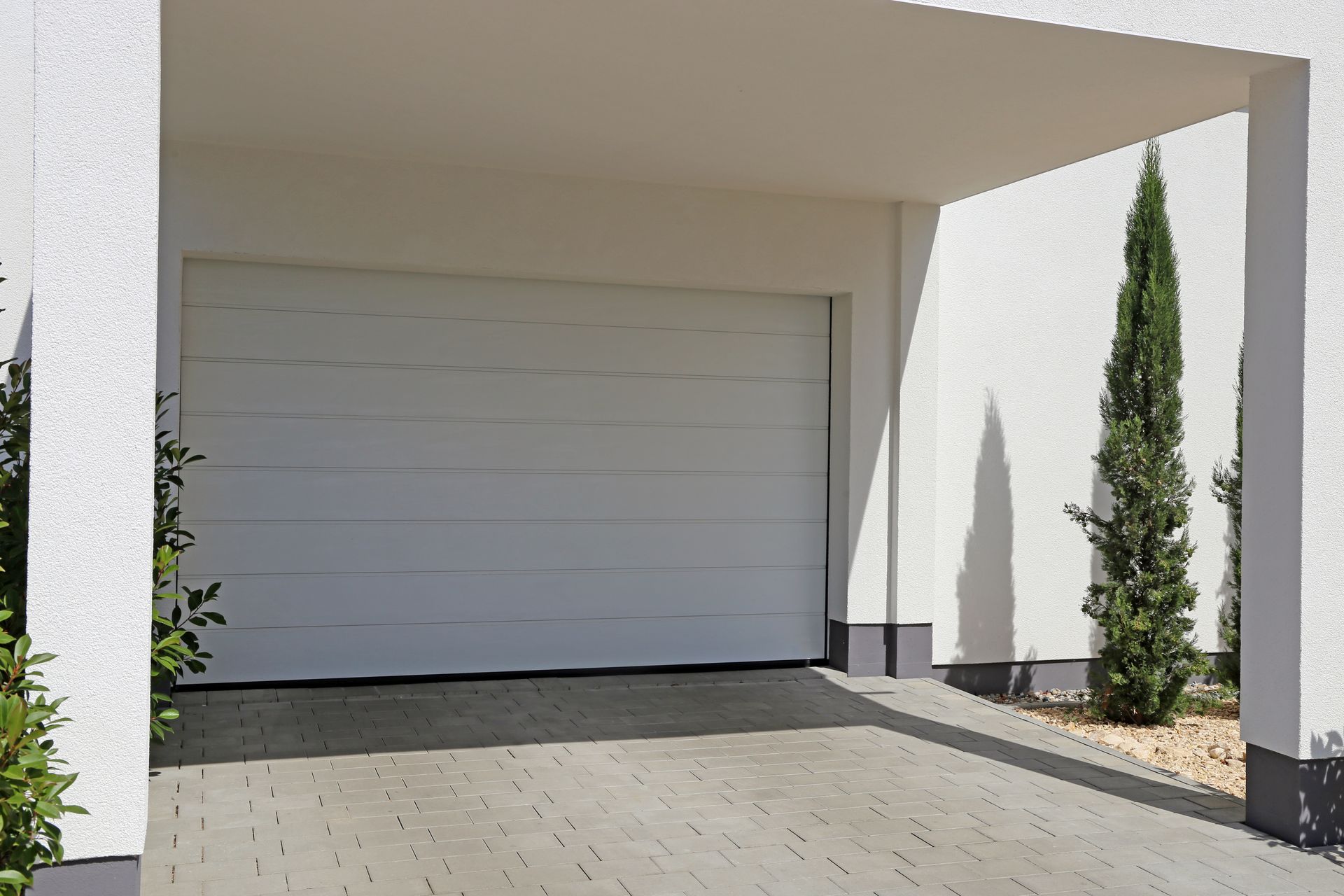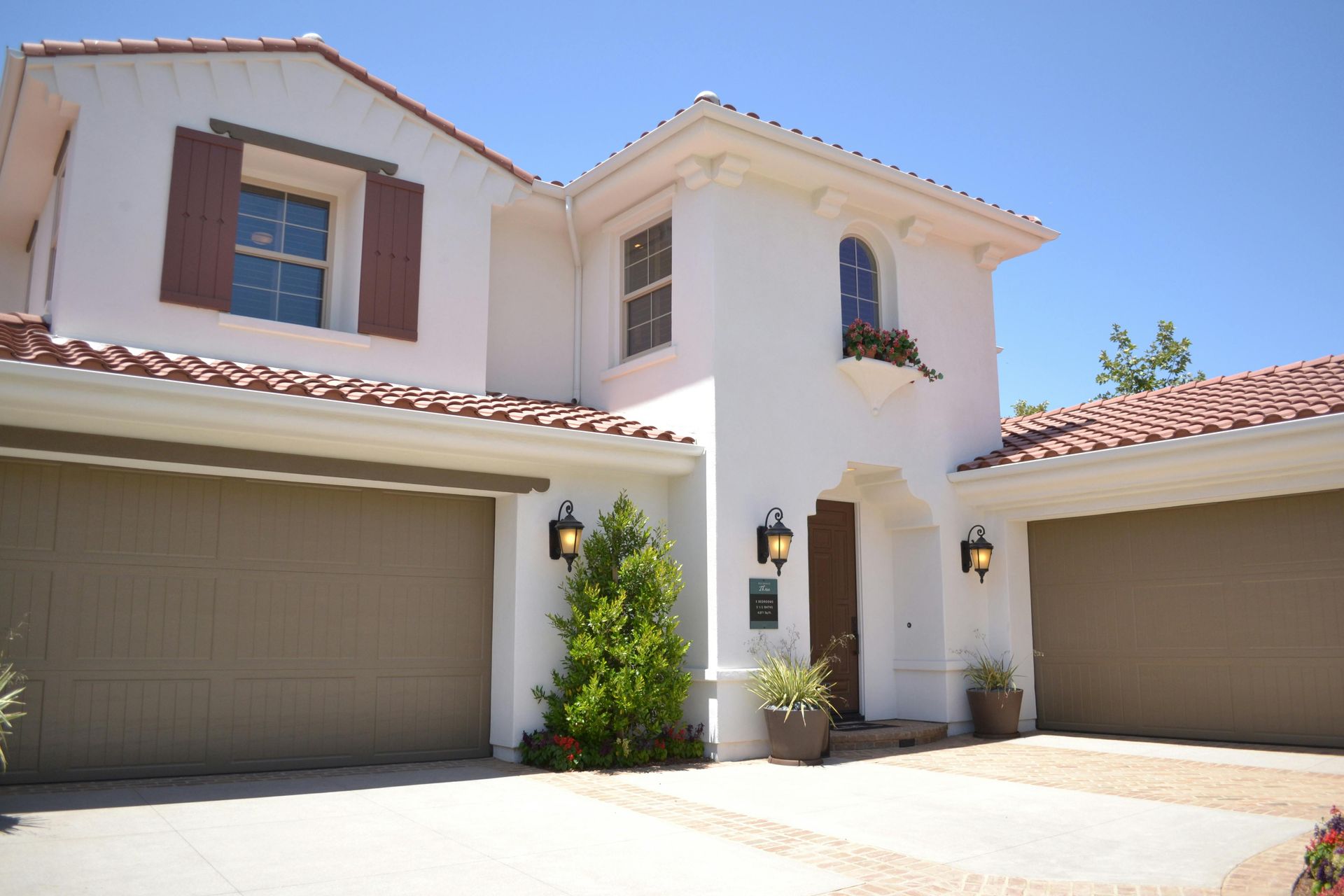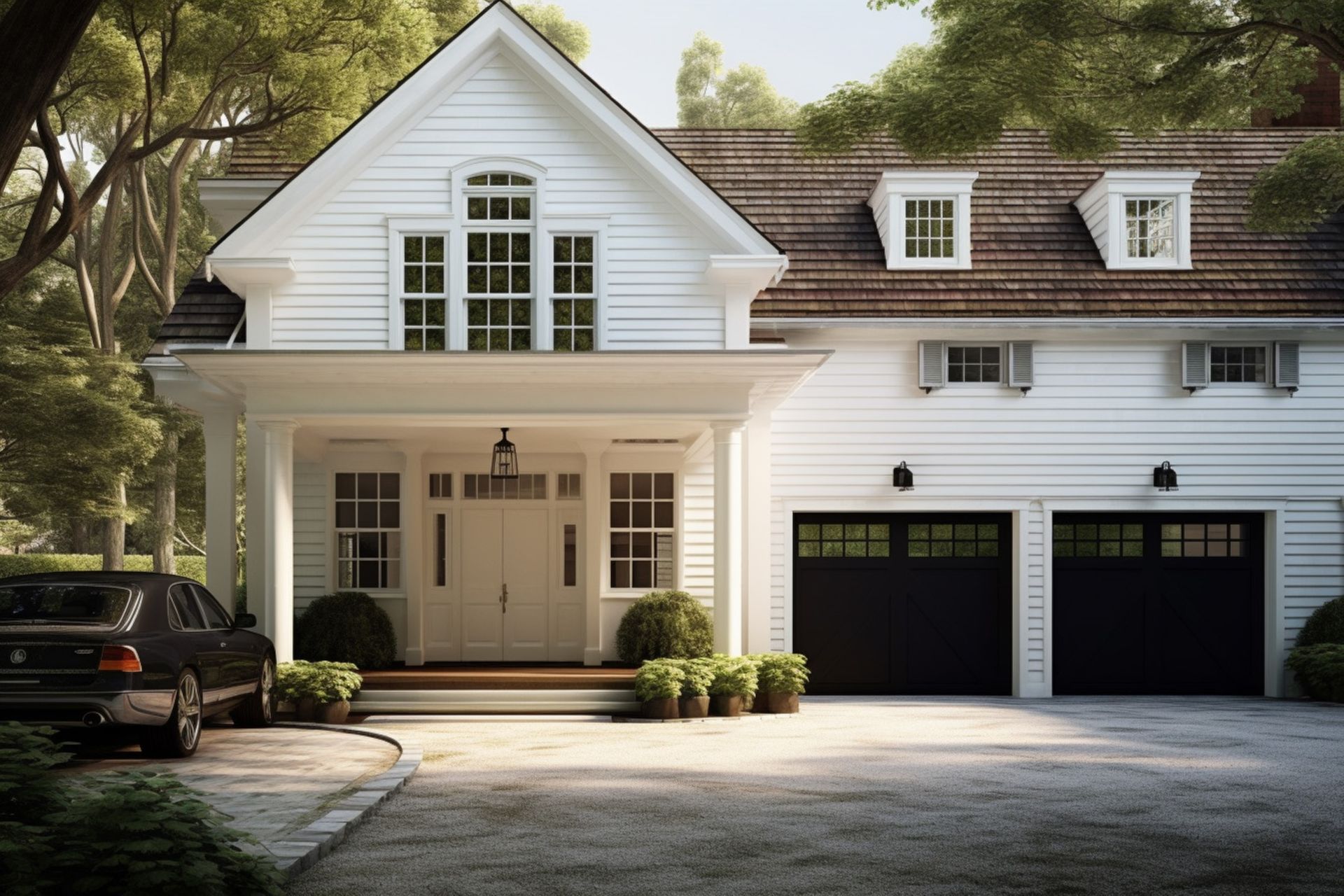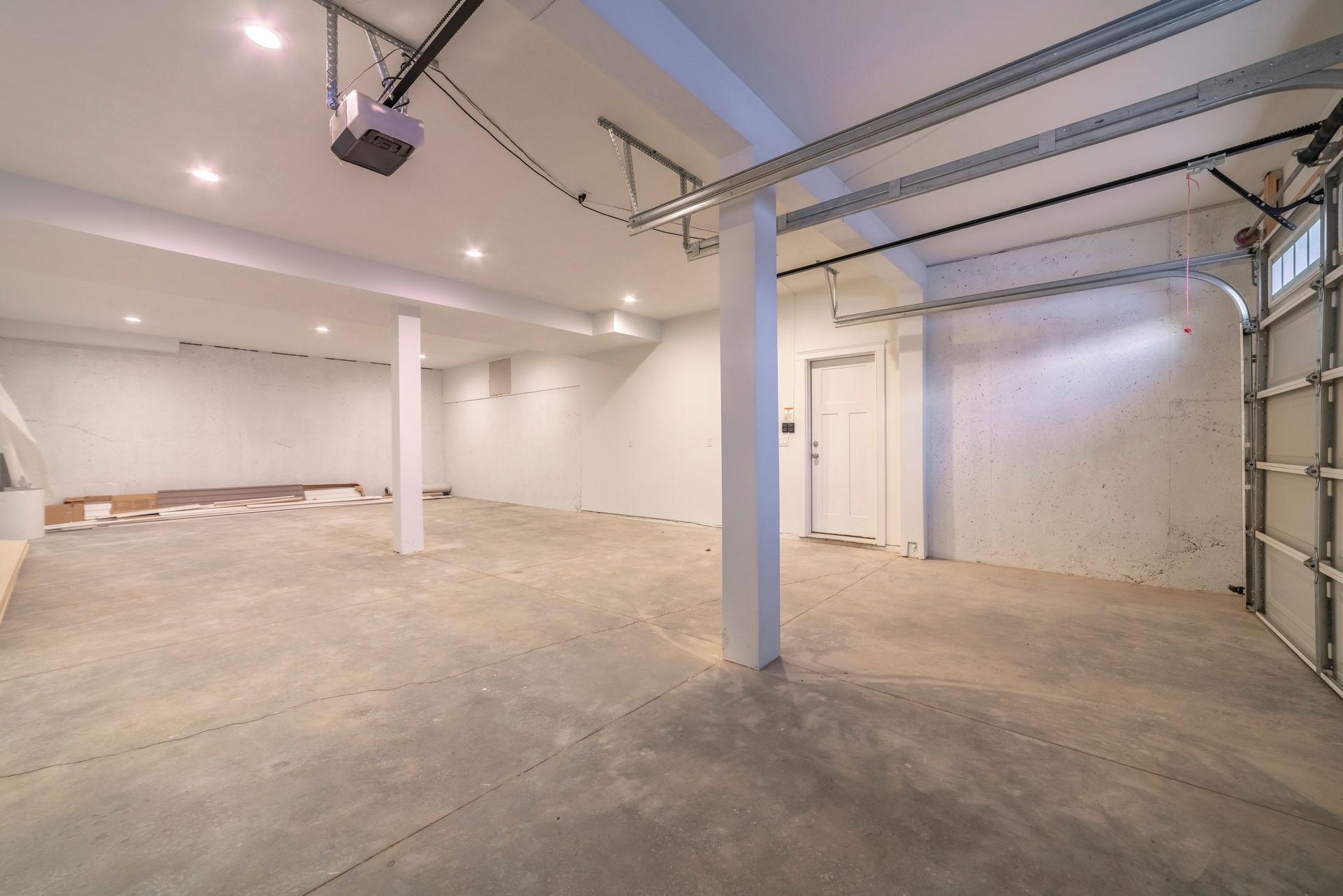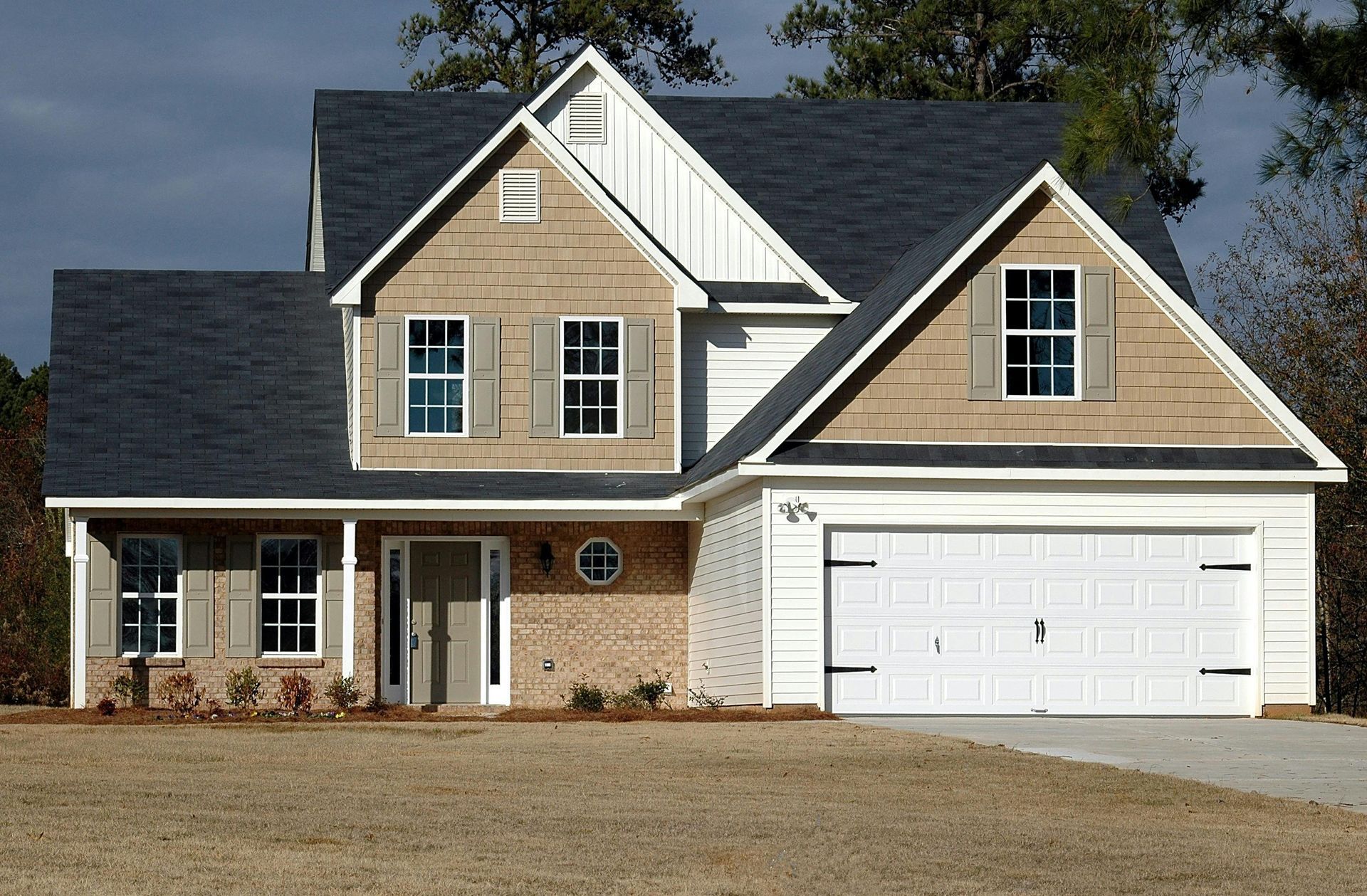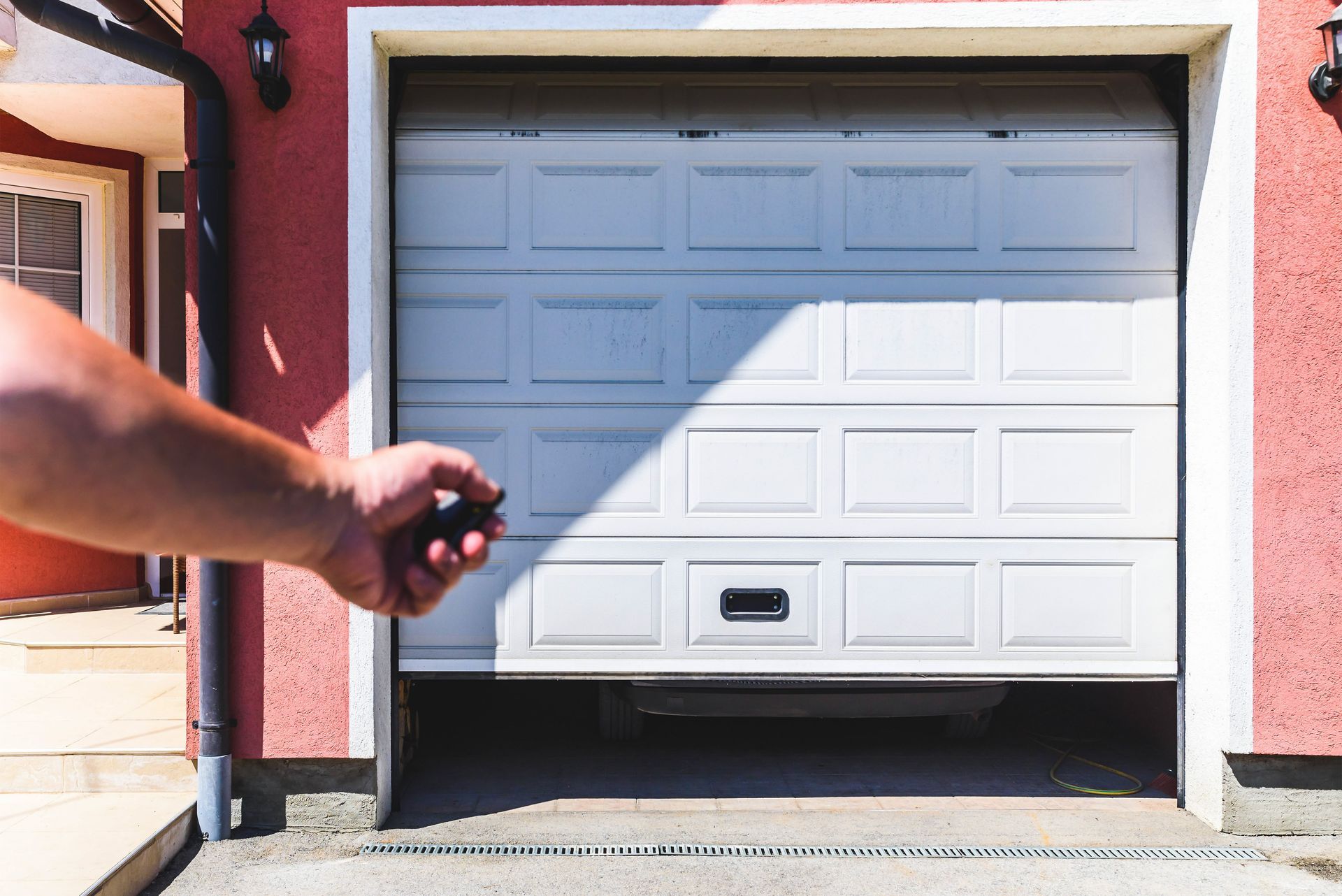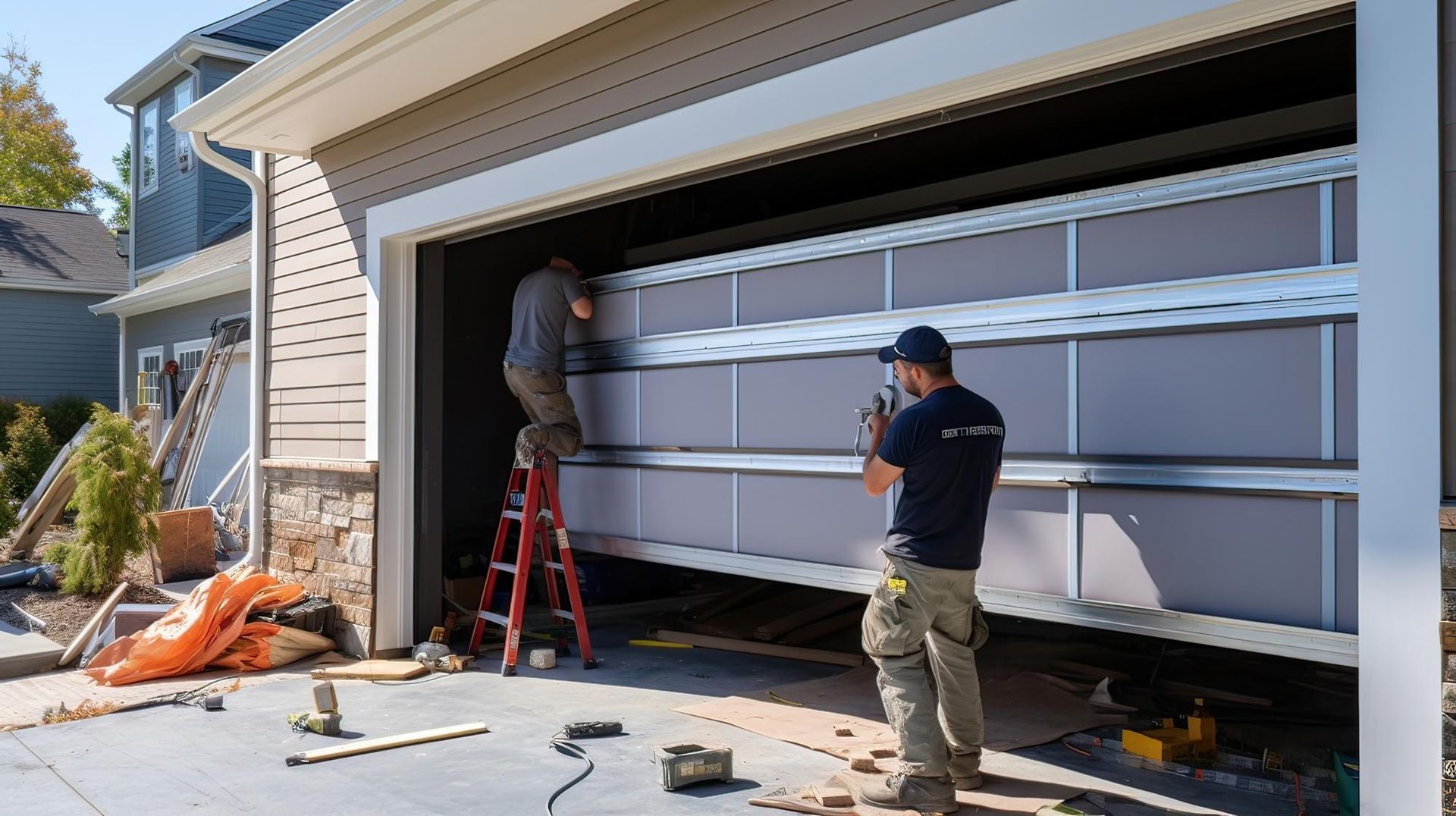Garage Door Noise: Common Causes and How to Fix It
A noisy garage door can be more than just an annoyance – it can be a cry for help from a system that’s in dire need of attention. Whether it’s the early morning screech of metal, a strange rattling sound, or a groaning motor, that noise is a tell-tale sign that your garage door needs some TLC. But don’t worry, you’re not alone in this. We’ll walk you through the common causes of garage door noise and provide you with the tools to fix it. Ready to restore peace and quiet to your garage? Let’s dive in!
1. Why Is My Garage Door So Noisy? Common Causes Explained
If your garage door has turned into a one-man band of rattles, squeaks, and bangs, you’re probably wondering what’s causing all the commotion. Fortunately, the culprits are usually common, easy-to-fix problems. Here are the top reasons for that racket:
Worn-Out Rollers
Over time, the rollers that help guide your garage door up and down can wear out, particularly if they’re made of metal. When rollers deteriorate, they create friction, leading to that high-pitched squeak or grinding noise.
Solution:
- Replace metal rollers with quieter nylon ones. Nylon rollers last longer and operate with minimal noise.
Loose Hardware
Your garage door is a moving system with lots of nuts, bolts, and screws. With all the movement, it’s no surprise that parts can come loose. Loose hardware can cause vibrations, rattling, and other unsettling noises.
Solution:
- Tighten any loose bolts and screws with a socket wrench. Check the brackets holding the door tracks in place, as well as the nuts and bolts on the door itself.
Worn or Poorly Lubricated Parts
Lack of lubrication is one of the most common causes of a noisy garage door. Tracks, hinges, springs, and rollers all need to be well-lubricated to work smoothly.
Solution:
- Use a silicone-based garage door lubricant on all moving parts. Avoid using grease, as it can attract dirt and grime.
Misaligned Garage Door Tracks
If your garage door tracks are misaligned or bent, it can cause the door to scrape against the tracks, creating a grinding or screeching sound.
Solution:
- Carefully inspect the tracks for any bends or gaps. If they’re slightly out of alignment, you can gently tap them back into place with a rubber mallet. For more significant damage, it’s best to call a professional.
2. How to Silence Your Garage Door with Proper Lubrication
One of the easiest and most effective ways to reduce garage door noise is through regular lubrication. You wouldn’t drive your car without oil, and your garage door shouldn’t operate without lubrication either! Here’s a step-by-step guide on how to do it right:
Lubricating Rollers
Rollers move up and down the tracks, and without proper lubrication, they can create all sorts of annoying sounds. Here's how to fix that:
- Apply a silicone-based lubricant to the rollers but avoid the nylon rollers if you have them, as lubricating those can damage the nylon material.
- Make sure you get the lubricant inside the roller bearings.
Hinges and Springs
Next, focus on the hinges that allow your garage door panels to bend as the door opens and closes.
- Lubricate the pivot points of each hinge to allow for smooth movement.
- For the springs, lightly apply lubricant to reduce noise and ensure smoother motion.
Tracks
While it may be tempting, do not lubricate the tracks themselves. Instead, focus on the moving parts like the rollers and hinges. Lubricating the tracks can actually attract debris, which leads to more noise and wear over time.
Do’s and Don’ts of Garage Door Lubrication
- Do: Use a silicone-based spray to avoid gunky buildup.
- Do: Lubricate your garage door parts every six months.
- Don’t: Over-lubricate. Too much lubricant can attract dust and debris, which will cause more problems down the road.
- Don’t: Use WD-40 – it’s a cleaner, not a lubricant!
3. DIY Garage Door Noise Fixes vs. When to Call a Professional
Some garage door fixes are perfect for DIY enthusiasts, but others? Not so much. Here’s a breakdown of what you can tackle on your own and when it’s time to call in the pros.
What You Can Fix Yourself
- Tightening loose hardware: This is a simple, straightforward task you can do with basic tools.
- Lubricating the garage door parts: This can be done with a silicone-based spray and about 15 minutes of your time.
- Replacing worn rollers: With the right tools, replacing old metal rollers with nylon ones can be a DIY job. Just make sure you follow all safety precautions.
When to Call a Professional
- Spring Replacement: Garage door springs are under high tension and can be dangerous to replace on your own. A snapping spring can cause serious injury.
- Track Alignment: If your tracks are severely misaligned, it’s best to leave the realignment to a pro. Incorrect adjustments can cause more damage to your garage door system.
- Motor Issues: If the noise is coming from your garage door opener, it might require motor repairs or replacements – a job for a trained technician.
4. Tips to Prevent Garage Door Noise in the Future
Preventing garage door noise is all about regular maintenance. The more proactive you are, the less likely you’ll have to deal with annoying squeaks and grinding sounds. Here are some key tips to keep your garage door in top shape:
- Inspect and Lubricate Regularly: Every six months, check all moving parts for signs of wear and apply a silicone-based lubricant.
- Tighten Loose Hardware: Make it a habit to check and tighten any loose screws, bolts, or nuts.
- Check the Balance: A garage door that’s out of balance can create excessive noise and cause damage to your opener. To check, disconnect the opener and manually lift the door halfway. If it doesn’t stay in place, it’s time to call a professional.
- Replace Worn Parts Promptly: If you notice worn rollers, hinges, or springs, replace them right away to prevent further damage.
Prevention may not sound glamorous, but a few minutes of maintenance can save you from dealing with a noisy, damaged garage door later on.
Need Help? Contact Cristo's Garage Door Today for Professional Garage Door Services in Fresno, CA!
If all this garage door maintenance talk has you scratching your head, don’t worry – we’re here to help! At Cristo’s Garage Door, we specialize in quieting down noisy garage doors and ensuring they operate smoothly for years to come. Whether you need a simple tune-up or a full replacement, we’ve got you covered.
Our expert team offers
professional garage door repair,
commercial
and
residential garage door services, and more throughout Fresno, CA, and the surrounding areas. No need to live with that annoying garage door noise any longer. Contact Cristo’s Garage Door today at
(559) 320-5158, and let us restore the peace and quiet in your home.
FAQs
Why is my garage door making a loud banging noise?
A loud bang often indicates a broken spring. Garage door springs are under high tension, and when they break, they can cause a loud noise. This is a serious issue that should be handled by a professional.
Can I lubricate my garage door with WD-40?
No, WD-40 is a cleaner, not a lubricant. For your garage door, you should use a silicone-based lubricant to keep parts moving smoothly without attracting dirt.
How often should I lubricate my garage door?
You should lubricate your garage door’s moving parts every six months to prevent excessive wear and reduce noise.
Why does my garage door squeak even after lubrication?
If your garage door is still squeaking after lubrication, it might be due to worn-out rollers, hinges, or springs that need to be replaced.
Is a noisy garage door a safety concern?
Yes, a noisy garage door can indicate underlying issues such as worn parts or broken springs, which can lead to safety hazards if not addressed promptly.
